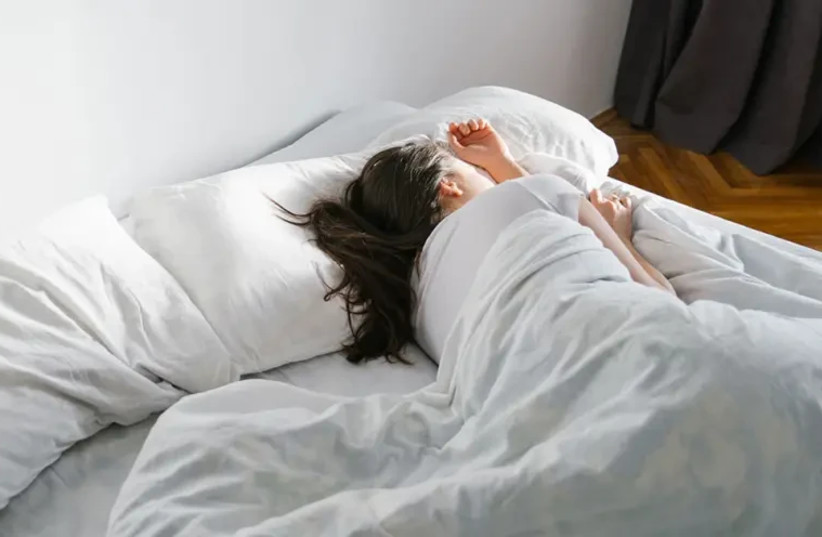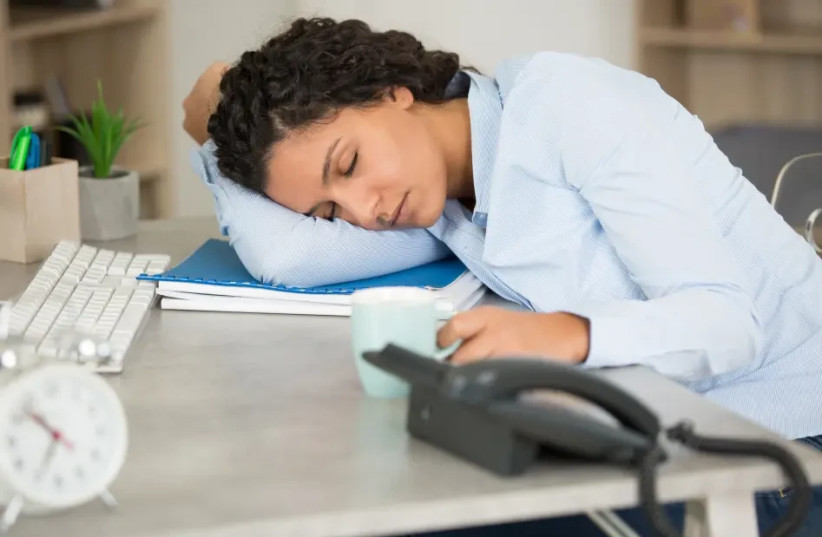Sleep fills a third of our lives. During sleep, thousands of brain and nervous system processes and extensive hormonal activities take place that affect our health. Sleep is critical not only for relieving fatigue but gaining strength for the next day. In recent years, more and more evidence has been discovered that a lack of sleep not only impairs the body's daily functions, it is simply dangerous.
Clinical studies indicate that insufficient sleep is associated with an increased risk of dementia, hypertension, obesity, diabetes, and even depression. Despite this, surveys conducted in recent years have shown that on average, people in the Western world are getting less sleep than the nightly recommended hours. According to some surveys, adult Israelis sleep an average of six hours or fewer a night. The situation has worsened since October 7 as well as a significant increase in the consumption of sleep medications, according to pharmacy data.
Our night consists of several sleep cycles, each lasting about an hour and a half. Each such stage includes four phases. The first stage of sleep is called N1, non-rapid-eye movement sleep. It is typical of the beginning of sleep and lasts for ten minutes, in which we begin the process of falling asleep. At this stage, there may be false visions called hypnagogia and the eye movements are slow as we begin to lose consciousness. At this stage, it is still easy to wake the sleeper.
The next stage is called N2, and lasts about 10 to 25 minutes. The second stage is responsible for about half of the entire night's sleep. At this stage we gradually lose awareness of the environment and brain activity slows down. When a person in this sleep stage is woken up, he will report that he was indeed asleep.
Stage N3 is the stage of deep sleep where we spend about a quarter of our total night sleep. This phase gets shorter throughout the night. The first sleep cycle lasts about 40 minutes and towards awakening it shortens to only a few minutes. In this state, the muscles are relaxed, the body temperature drops, and the awareness of the environment is almost non-existent. It is very difficult to wake up a person at this stage. If they do get woken up, they are still drowsy and experience a condition called "sleep inertia." For this reason, for example, people suffering from ADHD have a delayed secretion of melatonin, the biological hormone, in the morning they are still in an extensive N3 phase and it is very difficult to wake them up for school.

The last stage is REM, rapid eye movement. At this stage, the slow brain activity becomes more vigorous and the heart rate increases along with rapid eye movement. However, the muscles are completely paralyzed except for the fast-moving eye muscles, the muscles in the heart, and the muscles that support breathing.
Dreams usually appear in the REM stage. This stage is responsible for about a quarter of our total sleep and unlike stage N3, it gets longer during the night. These dreams are longer, appear in the morning hours,
10 steps to improve sleep duration and quality
If these methods do not help your sleep quality, ask your doctor for a referral for a Polysomnography, or a sleep study.
- Shorten the stay in bed: Spend time in bed only close to sleep. If you suffer from insomnia, get out of bed, engage in some other relaxing activity, and return to it only when you are ready to sleep.
- Darken the room: continuous and deep sleep requires complete darkness for most of us.
- Eliminate noise: Background music, a ticking clock, and noise from neighbors can make it difficult to enter the advanced stages of sleep. If there is constant noise outside, use earplugs.
- Change screen settings to filter blue light: Screens inhibit the proper secretion of our biological clock and the melatonin hormone. At least two hours before going to bed, professionals recommend switching the TV and cell phone screen to blue light filtering mode.
- Do not consume caffeine four hours before bedtime: Coffee, tea, cola, chocolate, and other products that contain caffeine prevent falling asleep and entering a deep sleep.
- Avoid night meals: Eating before bed can make it difficult to fall asleep. If you are hungry, snack on fruit or a snack without chocolate and with a low sugar and fat content.
- Avoid consuming alcohol late at night: It is commonly thought that alcohol helps to fall asleep, but the truth is that its breakdown products actually have a stimulating effect.
- Do not exercise close to bedtime: Exercise increases adrenaline and dopamine levels and makes it difficult to fall asleep.
- Try to adhere to regular sleeping hours: Changing sleeping times may impair falling asleep.
- Beware of sleep medications: Most of them cause habituation after prolonged use.

An "afternoon nap" allows us to rest and gather strength for the rest of the day, and it turns out that science also supports the effectiveness of a short rest. Workplaces worldwide have begun to allow employees to take a nap in the middle of the day simply because they realized that the short nap improves the alertness and productivity of the workers. But this nap has to be done correctly, lasting a maximum of 20 to 30 minutes, otherwise it will lead to the opposite result - fatigue and exhaustion later in the day.
Additionally, longer sleep leads to deep sleep or a more advanced stage—dream sleep. When a person wakes up during that advanced sleep stage, he will feel tired and unrested. A new method introduced in recent years combines drinking coffee and dropping after into a short nap of 20 minutes. At this time, the caffeine penetrates from the digestive system into the blood circulation, and upon awakening, the caffeine begins to have a positive effect and gives the body a slight boost of energy.
